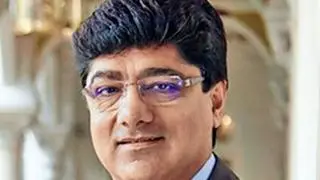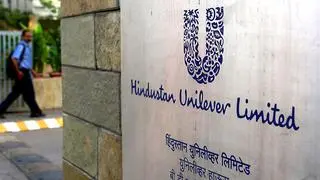Jan Hedemann has all the makings of the quintessential global citizen. Born in Denmark, he has worked in seven countries before coming here last year to head the Indian operations of Alfa Laval, a Swedish engineering firm. When he hangs up his boots it will be Australia that will become home for Hedemann, his wife of Chinese origin, and their three children.
The 20-odd years (of a 33-year-long career with the group) that he has spent in Asia — in particular, in Malaysia, Singapore, Japan and Indonesia — has laid the ground for the India stint and made it somewhat “hard to culture-shock” him.
In an interview with Business Line , Hedemann spoke about living and working in this vast, diverse country that he rues “doesn’t appear to be very organised”. Edited excerpts:
You came to India on the back of a stint in Japan. What are your impressions?
I think you would hardly find two countries in the world more opposite than Japan and India. The first: disciplined, orderly, clean, safe. And India, not very orderly. It strikes you as noisy, dusty, not very organised. Of course there are parts of it that I like, but when I drive past a slum settlement, for all my travelling, my stomach still churns with the in-your-face poverty. I am not comfortable with beggars, and I will always try to sneak a note to a beggar girl, despite being advised against it. In fact, I hope not to ever get used to the sight.
How do you find the work environment?
I love the Indian forthrightness. It is the extreme opposite of that in Japan. (In India) people look you in the eye when they are expressing their views or don’t agree with you. You get debate, and there are not so many Yes-people. This is a refreshing difference.
They are very educated and knowledgeable, and yes, sometimes come across as pushy and aggressive, which is not so in other parts of Asia.
I have worked with Indians abroad and it is nice to come here and see it works really well.
But my advice: never send a fresh expat to India, because it is so radically different; they can’t be Western here, and have to change their behaviour.
What is it like to do business here?
I think it is one of the most difficult places in the world to do business. Thank God it is not impossible. Accessibility is complicated because of the geographic limitation, but I think there is a rather extreme focus on cost. Alfa Laval products are rarely among the cheapest, but at times it is difficult to sell value. Price elasticity is so low — I have never seen anything like this. In Japan, when you have built a relationship, you won’t lose a project because your price is higher. In India, you won’t get to see the order.
So, our negotiations are done by my Indian colleagues and I am often baffled by the (prolonged) discussions on small amounts.
We have to be innovative and make products for India, and learn how to take things away — the bells and the whistles — that Indians don’t want to pay for. In fact, six R&D engineers are working on partly Indianising our decanter.
Are you interested in the elections? Are you rooting for any party?
I don’t profess to know much, though I know that these are the Lok Sabha elections. I knew about the Gandhi family and it is interesting to see that they are not revered here as they are abroad.
India has gained worldwide name and respect because of the Gandhi name, so I would have thought there will be greater respect here. That perception has disappeared. It comes as a shock.
Certainly, the general perception is that the Manmohan Singh period is not seen to be one of progress — and that India has fallen asleep. I think we were hoping for many reforms, but they haven’t come and it is very, very difficult to get business started.
The BJP seems more business friendly, but while sentiment might change, the basic fundamentals may not change.
Anything you like in particular about India?
I haven’t travelled too much, but I have visited Agra to see the Taj Mahal and also been to the Taj Palace hotel and Gateway in Mumbai.
The monuments are grand, and I have to respect any society that can do things like that. I think one should not be deflected by the slums.
This is part of a series on expat CEOs working in India








Comments
Comments have to be in English, and in full sentences. They cannot be abusive or personal. Please abide by our community guidelines for posting your comments.
We have migrated to a new commenting platform. If you are already a registered user of TheHindu Businessline and logged in, you may continue to engage with our articles. If you do not have an account please register and login to post comments. Users can access their older comments by logging into their accounts on Vuukle.